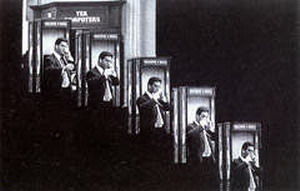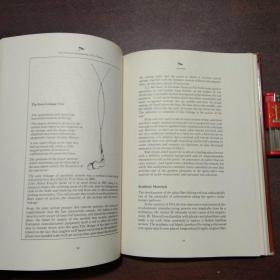
Content:
Fishing, an age-old activity, has always been a source of fascination for many. Whether it's for relaxation, sport, or even sustenance, the art of fishing has been practiced for centuries. Observing the techniques of others can greatly enhance one's own fishing skills. In this article, we will explore some common fishing techniques and how they can be improved upon. So, let's dive into the world of fishing and see what we can learn from others.
First and foremost, it's essential to have the right equipment. A good fishing rod, reel, and line are the foundation of any successful fishing trip. Observing others can help us understand the importance of choosing the right gear for different types of fish and fishing environments. For instance, a heavy-duty rod and line are required for catching larger fish, while a lighter setup is more suitable for smaller species.
One of the most crucial aspects of fishing is presenting the bait or lure to the fish in an appealing manner. Observing others can help us understand the art of presentation. For instance, a skilled angler might twitch their lure in a particular pattern to mimic the movement of a struggling prey, thereby attracting the fish. By studying these techniques, we can learn how to present our own bait or lure more effectively.
Another important aspect of fishing is understanding the behavior of the fish we are targeting. By observing others, we can gain insights into the habits and preferences of different species. For example, some fish are more active during the early morning or evening, while others are more likely to bite during midday. By learning from others, we can choose the best time to fish and increase our chances of success.
One often-overlooked aspect of fishing is the importance of patience. A good angler knows that fishing is not always about catching fish, but about enjoying the experience. Observing others can help us appreciate the value of patience and the beauty of nature. It's not uncommon to see an experienced angler sitting quietly for hours, waiting for the perfect moment to cast their line. This patience pays off when the fish finally strikes.
Furthermore, observing others can teach us about the importance of adaptability. The fishing environment is always changing, and a skilled angler knows how to adapt to these changes. For instance, if the fish are not biting on one type of bait, an experienced angler might switch to a different lure or technique. By learning from others, we can develop our own adaptability and improve our chances of success.
Another valuable lesson we can learn from others is the importance of safety. Fishing can be a dangerous activity if proper precautions are not taken. Observing others can help us understand the importance of wearing appropriate attire, using safety gear, and being aware of our surroundings. For example, a responsible angler will always check the weather forecast before heading out and be prepared for sudden changes.
Lastly, it's important to learn from others' mistakes. Everyone makes mistakes, and observing others can help us avoid the same pitfalls. For instance, we might see an angler casting their line too far, only to have it tangled in the weeds. By learning from this mistake, we can adjust our casting distance and technique to prevent similar issues.
In conclusion, observing the fishing techniques of others can greatly enhance our own skills and enjoyment of the sport. By learning from the right equipment, effective presentation, understanding fish behavior, patience, adaptability, safety, and avoiding common mistakes, we can become better anglers. So, the next time you're out on the water, take a moment to observe the techniques of others and see what you can learn. With practice and patience, you'll be well on your way to mastering the art of fishing.












